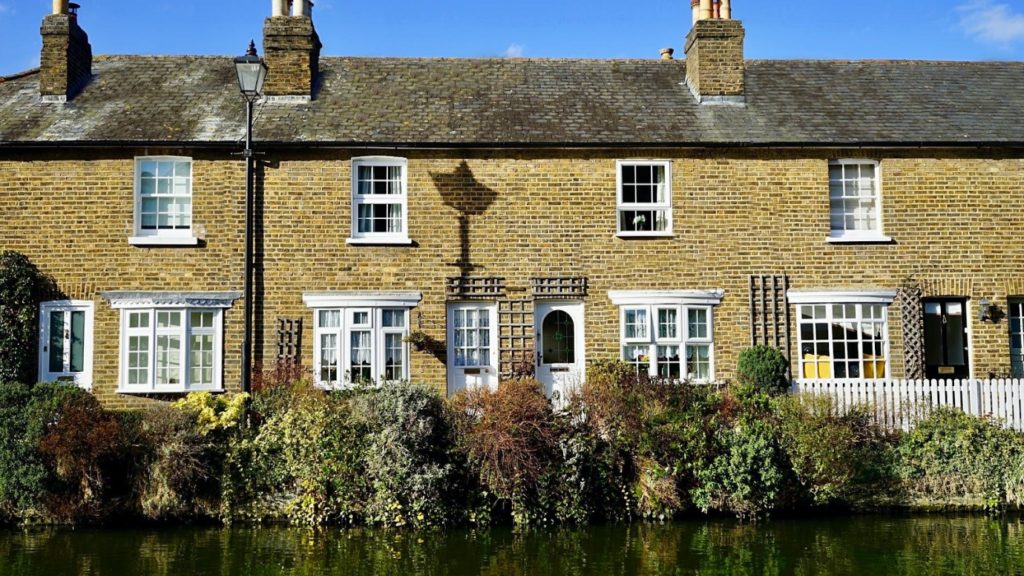If you are in negative equity, then you may find it hard to move house, and you may also find it hard to re-mortgage as well. The coronavirus pandemic has wreaked havoc on the global economy plus employment and as a consequence the housing property market, it’s safe to say that it is now more important than ever for you to start taking positive steps towards securing your financial future.
The key to doing this successfully is to get advice early. This website is about why you should get advice early. We have based our example in the United Kingdom because their support to consumers is more advanced than many countries and other countries are likely to follow their example in the coming years. Want to find out more? Take a look below.
Quick Navigation:
- What is Negative Equity?
- How do I Know if I Am In Negative Equity?
- What Issues Come with Being in Negative Equity?
- About Negative Equity Mortgages
- How to Reduce Your Negative Equity
- Commonly Asked Questions about Negative Equity
- The Importance of Mortgage Protection Insurance
- The Importance of Getting Advice Early
What is Negative Equity?
If you have a mortgage that is interest-only then you are way more at risk of going into negative equity. This is because any monthly payments won’t go towards reducing the value of your debt. It will only go towards interest. Property is in negative equity if it is worth less than the total value of the mortgage. Negative equity usually comes about as the result of plummeting property prices resulting from an economic downturn. Take the following for example:
A. If you bought a property for the grand total of £250,000 and your mortgage is for £220,000, but the value of the property is only £200,000 then this would put you in negative equity.
B. If you bought a property for the same value, £250,000 and your mortgage is for £230,000, but the property is worth £240,000 then you would not be in negative equity.
With example A, you would be in negative equity because if you sold your property, you would not pay off your mortgage. With example B, even though you would make a loss, you would still be able to repay your mortgage. This is the difference between making a loss on your property, and being in negative equity.
It’s estimated that in the UK alone which this website focuses on as an example, there are over half a million properties that are currently in negative equity. Some areas tend to be more affected when compared to others, but Northern Ireland is of particular concern. Two out of five properties are in negative equity.
How do I Know if I Am In Negative Equity?
You might not know if you are in negative equity or not. The best thing that you can do is try and arm yourself with the right information so that you can take actionable steps towards securing your financial future.
Knowledge is power at the end of the day, so make sure that you do your research and talk to your lender. If you want to find out if you are in negative equity or not, then take a look below for the action steps that you should take:
Ring The Money Advice Service (0800 138 7777)
The Money Advice Service has an excellent article on negative equity entitled Negative Equity: what it means and what you can do about it which you can read by clicking here. Once you have read the article you should know that getting advice early is important.
You will also know that The Money Advice Service has free impartial money advice, but you must still do your research first. You will also have noticed that The Money Advice Service’s article on Sharia-law-compliant rent to buy home purchase plans, but if you missed it you can read it by clicking here
Ring your Lender
The first thing that you need to do when you ring your lender is to find out how much you owe them right now.
Ring your Estate Agent
The next thing that you need to do is ring your local estate agent to see if they can value your home. If the property is below what you owe on your mortgage, then this will put you in negative equity.
What Issues Come with Being in Negative Equity?
Being in negative equity is never a good thing, but at the end of the day, it will affect you more in certain situations when compared to others.
It’s A Problem if you Want to Sell Your Home
Unless you have savings that you can use to make up the difference between your home’s value and the value of your mortgage, you may find moving house very difficult.
If you want to re-mortgage, then this can also be difficult, if you want a fixed rate.
This is because a lot of lenders won’t let people who are in negative equity swap to a new loan when their loan has ended. They will move you onto the lender’s variable interest rate rate loan instead.
Moving House if You’re in Negative Equity
How easy it is for you to move will ultimately depend on a number of factors. This can include:
- The amount of negative equity you have
- The value of the property you wish to move to
- Whether or not you’re up to date with your current mortgage
- How much of a deposit you have for your new property
Either way, it’s always a good idea for you to talk to your lender to see if they can give you some help and support with your property.
About Negative Equity Mortgages
If you are in negative equity, then you may have heard about negative equity mortgages in the past. When you take out something like this, you will be able to transfer your negative equity mortgage to your new property. Even with this, you will still be asked to put down a deposit.
Pros of a Negative Equity Mortgage
The pros of a negative equity mortgage is that you can move and you won’t have to pay off the negative equity on your existing mortgage. This is useful if you have to move for family reasons or if you need to move for work.
Cons of a Negative Equity Mortgage
You may have to pay an early repayment charge on the mortgage you have now if you aren’t careful. There may well be extra fees and charges associated with this, not to mention that your mortgage may have a much higher interest rate when compared to your last one.
Other cons include the fact that not many lenders offer them.
How to Reduce Your Negative Equity
If you want to reduce your negative equity, then you’ll be glad to know that there are a number of ways that you can do this. If possible, you need to try and reduce it by overpaying your mortgage. First, check to see if the mortgage you have allows you to make overpayments. If so, then you may be able to dig yourself out of your negative equity.
The next thing that you need to do is work out how much you can pay every month, or even as a one-off. Check to see if you have an online mortgage calculator that you can use. This will tell you how much of a difference your overpayments are going to make. At the end of the day, so many mortgage brokers and lenders have access to these tools so that you can easily use them.
Renting Out Your Home if You’re in Negative Equity
If you are in negative equity, then another option would be for you to try and rent out your home. Your lender may well agree to this. This would of course, mean that you keep the mortgage that you have now, but you may have to pay a much higher interest rate. You would have to tell your insurer as well.
How to Prepare for A Higher-interest Rate
Interest rates really have been at the same base rate of around 0.5%. This has been the case since 2009. If the interest rates rise, then you have to make sure that you are able to afford your repayments. It’s very important if you are in negative equity as you could be more vulnerable when it comes to getting your property repossessed.
Commonly Asked Questions about Negative Equity
Take a look below to see some of the most commonly asked questions about negative equity.
[WPSM_AC id=5726]
If you need some help, then check out this eBook, which will help you to take control of your payments: https://www.amazon.com/Negative-Equity-Control-Repayments-Budget-ebook/dp/B07MDQPKWG
The Importance of Mortgage Protection Insurance
If you want to make sure that you are not having to deal with the aftermath of being in negative equity or if you are concerned about your home not giving you the launchpad you need to get further up the property ladder, then it’s more than possible for you to take out mortgage protection insurance.
When you do, you can then feel good knowing you are going to be covered. This can complement your mortgage provider’s insurance and it can help safeguard you against any economic downturn that may happen in the future.
Of course, prevention is best when it comes to your property but if you are willing to put in the work now, then there’s no reason at all why you shouldn’t end up coming out on top.
The Importance of Getting Advice Early
This website is about why you need to get advice early. It provides general information only and is not a recommendation to act in any particular way other than to seek advice early. In the United Kingdom, the starting place always should always be to Ring The Money Advice Service (0800 138 7777). Their advice is free and impartial.
However, if you feel that you want to independently pay for advice from a financial planner The Money Advice Service has guidance on how to select a financial planner which you can read by clicking here and if you believe you want specific mortgage advice and are considering getting a mortgage adviser you should read this article here.
If you wish to comment on an article or post, please use the contact form below.


















